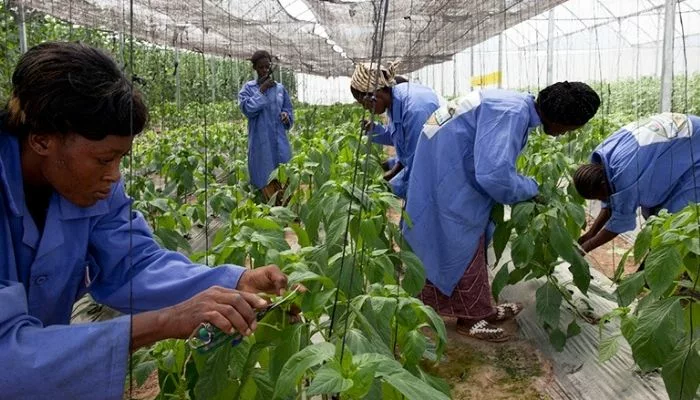Nigeria’s food systems which reflect the diverse cultures, ethnic groups, and a rich food heritage are known for their flavor, variety, and the use of local ingredients such as cassava, yams, plantains, and spices among others. However, despite the richness of Nigerian food, the country faces several challenges in its food systems that affect its people’s nutrition and health.
One of the significant challenges in Nigeria’s food system remains food insecurity, which affects over 90 million Nigerians according to the Food and Agriculture Organisation of the United Nations (FAO).
The country’s food production system faces several challenges, including a lack of modern farming techniques, inadequate infrastructure, and the impacts of climate change which leads to reduced agricultural yields.
Another challenge is the issue of malnutrition, which affects both children and adults in Nigeria. According to a report by the Global Nutrition Report, one in three Nigerian children under the age of five is stunted due to malnutrition. Malnutrition in adults is also high, with a high prevalence of micronutrient deficiencies such as iron, vitamin A, and iodine.
The food distribution system in Nigeria also presents challenges, with many rural areas lacking adequate transportation and storage facilities to ensure food reaches the people who need it. This leads to food waste, especially of perishable produce such as fruits and vegetables.
Although despite these challenges, there are many several efforts put in place by the federal government to improve Nigeria’s food systems. For instance, the initiated programmes to increase food production and distribution, such as the Anchor Borrowers’ Program and the National Home Grown School Feeding Program and additionally, there are ongoing efforts to improve agricultural practices through the use of modern farming techniques, including the adoption of irrigation systems and the use of improved varieties and some climate adapted agricultural practices.
Another promising development is the growth of the agribusiness sector in Nigeria. The sector is increasingly attracting private sector investment, with several companies investing in the production, processing, and distribution of food products in the country. This investment is creating jobs and supporting the growth of the country’s economy.
However, according to the FAO, for Nigeria to attain food self-sufficiency, the country’s current food systems need to be transformed to help her achieve Sustainable Development Goals agenda, not only through production technologies but also entrenching sustainable and inclusive food systems in the structure of governance and administration.
This was part of the conclusions reached by the organisation as contained in the recently released Nigeria Food Security Assessment profile.
The assessment gathered a wide range of food system actors in Nigeria through a consultation process where they shared views on key issues and challenges and analysed potential solutions.
The assessment was part of a joint initiative launched by the European Union (EU), FAO, and the French Research Centre for Agricultural Development, (CIRAD) in collaboration with the Government of Nigeria.
Its purpose was to identify key constraints and entry points for understanding the bottlenecks to sustainable food systems, and to propose innovative policy and investment solutions to make food systems more sustainable and inclusive.
FAO noted that the current food systems are unable to fulfil their purpose of providing nutritious and healthy food for all and contributing to enhanced livelihood opportunities in an environmentally sustainable way.
According to FAO Nigeria office, gaps such as low yields, post-harvest losses, food safety concerns and climate change impacts, coupled with weak implementation of relevant policies and legislation, are combine to stagnate the country’s agriculture production.
Commenting on the report, FAO country representative in Nigeria and ECOWAS, Fred Kafeero, highlighted four key challenges hindering the country from transitioning towards a desirable sustainable food system are highlighted therein.
These includes food system vulnerability to internal and global shocks; underdeveloped agrifood value chains; food system vulnerability to climate change and natural resource degradation and poor diet quality and high prevalence of food and nutrition insecurity.
There is no gainsaying that Nigeria’s food systems face several challenges that affect the nutrition and health of its people. However, there are ongoing efforts to address these challenges and improve the country’s food production, distribution, and consumption systems need to be redoubled. These efforts are critical to ensuring that Nigerians have access to nutritious food and can lead healthy and productive lives of its citizens.





